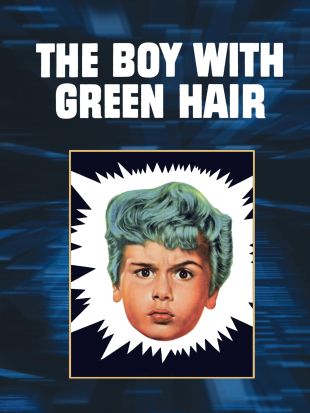
One of the last movies made at RKO under the regime of production chief Dore Schary, The Boy With Green Hair was one of the most idealistic fantasy films ever made in America. Completed for release after Howard Hughes took over the studio, The Boy With Green Hair never got the kind of push that it should have, or that it needed, to become anything more than a cult curio in the history of American cinema. Director Joseph Losey put it all on the line with this Technicolor production, which might not have had an expensive cast but cost a fair amount to shoot. The movie's idealism, as well as its implicit criticism of American (and Russian, British, French, and Chinese) governmental policies (and our nuclear program), were about as harsh and confrontational as mainstream filmmaking got in 1948, even if they were couched in terms of fantasy and a cinematic fable. Moreover, the entire cast, from Dean Stockwell, Pat O'Brien, Robert Ryan, and Barbara Hale on down, seemed to embrace the movie's message with genuine fervor, which only made the movie more piercing and potent. European filmmakers, including Vittorio De Sica with Miracle in Milan and Leo Joannon and John Berry with Atoll K (aka Utopia), would try other whimsical approaches in dealing with the plight of displaced persons, but Losey and RKO were there first; and though the movie seemed to create more trouble than it was worth as far as the new RKO management was concerned, The Boy With Green Hair has endured better and longer as a potent piece of filmmaking than any movie that the new management generated at RKO during the eight years that followed until the studio's demise. Sadly, the movie endures today as well, because it addresses a problem that's not much less serious and pressing today than it was in 1948.
